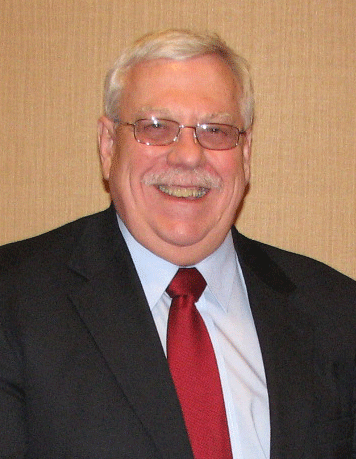Legislative Update
 by Bill Strusinski
by Bill Strusinski
Government Affairs Representative
Well, session is over and it looks like a special session will not be called anytime soon. This is a change in the optimism I expressed last month. In the meantime, the lay of the political landscape is more certain and the likelihood of a special session is more uncertain.
So, what’s changed? The Governor vetoed the Tax Bill, which contained a major mistake in the wording in one section, which meant the state would lose over a $100M in revenue. However, the tax bill also contained some provisions that were very good for small businesses including relief on commercial business property and federal conformity on a variety of fronts. The second thing that has changed, is the House of Representatives held a capital investment hearing and corrected the mistakes contained in their $1B bonding bill which never passed the legislature in the final minutes of the regular session. This was a big step in the right direction.
Now for the politics and a bit of education. The dilemma is, under the Minnesota Constitution, only the Governor can call a special session not the legislature. As a result, he is charge and he has the real power in the negotiations. He is not up for re-election at this time. The Governor can call a special session but he can’t stop it. The only way a special session will occur is if both sides agree to a limited agenda and the terms of each bill.
In order for him to call a special session, the Governor has publically said he wants more money ($100M) for the U of M and MnSCU system and he wants the legislature to fund the proposed Southwest Corridor light rail system. That could be another $100 to $200M. In exchange, he will sign a new (mistake corrected) tax bill. Everybody agrees a tax bill and a bonding bill would be a very good thing. So far, the House has rejected his offer saying it is too much and we don’t want to spend any more money on light rail projects.
Since both the House and Senate are up for election this year they could campaign on the fact they indeed did bring home the bacon instead of having just “good campaign talking points!” The public wants action not gridlock. So, we will just have to wait to see how this plays out.
Suffice it to say, most Minnesotans want action on these two major bills. Otherwise the 2016 session was not very productive.
Here is a repeat of the information regarding the other bills we played a role in passing or defeating:
• Unemployment comp tax reduction legislation has been PASSED and signed into law. This important bill will cut employers UC tax rates in the amount of $265M. Every employer should get some reduction.
• Family and Medical Benefits and Leave (PTO) SF 2558 FAILED.
• Retainage bills HF2451 and SF1898 PASSED. This bill provides for a 5% retainage cap on a construction project.
• Duty to Defend bill HF1099/SF924 FAILED but it will be back in 2017. The bill provides that subcontractors will not have to defend a general contract against a liability claim for damages due to their negligence. After passing out of committees where the disagreements between general and subcontractors were quite prominent—the bills are ready to be voted on by the full House and Senate.
• Construction Career Pathways grant. PASSED HF3658 would provide $1,000,000 in workforce development funds to the Construction Careers Foundation to promote construction industry careers to middle and high school youth, disadvantaged and minority youths, parents, counselors; increase the number of high schools offering construction classes during the academic year; increase summer internship opportunities in union programs and help students get construction jobs after graduation.
• Responsible Contractor law FAILED. An industry work group has been assembled and will meet over the summer to develop proposals that will improve the current law.
• Energy and CIP funding reduction bills FAILED to pass.
• A solar panel and fire code bill PASSED. This bill allows school districts to use their repair and maintenance funding for updating solar panel safety switches consistent with the current electrical and fire codes. This bill will most likely be included in the omnibus education finance bill.
• Construction code transfer bill HF 2839 FAILED. The bill would transfer the functions of the construction code division from DOLI to the Dept of Public Safety.
• Workers comp reform bill PASSED. This bill made technical corrections to current law and attempted to reduce worker’s compensation rates through caps on medical charges
• DLI Rules timeframe PASSED. Typically, it takes 270 days for rules to become effective once they are published. The language in this bill would allow NEC rules to be adopted sooner for public safety reasons. New code generally means more safety.
For further information, contact the MEA Office.